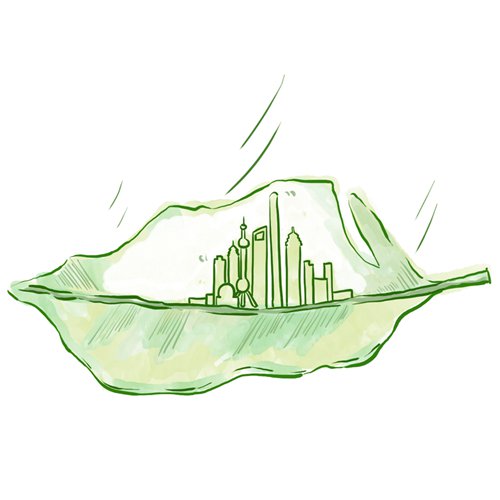- Home > News > Domestic News
- domestic news
2017 could be Shanghai’s most-improved year yet!

If everything proceeds on track, it seems that 2017 is going to be a year remembered for immense changes being made by Shanghai to improve health, safety and the environment. All in one day, March 1, smoking in public was banned and unlicensed scooters were banned.
Thus far, 2017 has also symbolized positive change in other ways both big and small. The city is planning five-day smog forecasts, police are clamping down on scooter-driving delivery boys (responsible for 60 percent of all traffic accidents in Pudong New Area), vertical forests will be planted on the sides of buildings to absorb CO2 emissions, and trendy bike-sharing businesses are helping eliminate vehicular congestion and pollution.
It's clear that the local government is taking our environment, our safety and our health far more seriously than in the past, when such things came a second to the economy. These are all, however, just small steps forward for issues that technically require great leaps; what with an estimated 1.5 million Chinese dying ever year from tobacco-related diseases and six people per every 100,000 dying from PM2.5-related health problems.
The reason that there are so many smokers here has a lot to do with its culture, with BBC News' Martin Patience calling it "China's national pastime." As the Chinese consume a third of all the word's cigarettes, it will take time and resilience to overcome this deeply ingrained custom.
But a ban outlawing it in public spaces at least sends a message to everyone that smoking is no longer acceptable, and at the very least it will help discourage youth from emulating their addicted elders.
On the other hand, even if lung cancer rates drop as a result of China's anti-smoking campaign, it's all for naught if the water we drink and the air we breathe stay cancerous. Public officials are provided government-funded air filters and water filters for their offices, yet public schools in Beijing and Shanghai are denied the same privilege. How does that make any sense?
I suppose we should be grateful that food safety regulations were strengthened this January to impose a lifetime ban from the industry for operators convicted of food safety crimes. Designed to enhance transparency and accountability among manufacturers, distributors and retailers of products such as meat, milk formula and cooking oil, the China Food and Drug Administration's Order 27 came about after nearly a decade of food scandals raised concerns about food safety. It of course remains to be seen if this law will actually be enforced, so until then everyone should remain cautious of locally made food products.
On a larger scale, China as a whole seems to be trying its best in regards to pollution. Media recently reported that China's coal use fell in 2016 as solar power increased, with experts saying coal is unlikely to return to its previous levels. Related, Nanjing Green Towers, slated for completion in 2018, will flourish with 1,100 trees and 2,500 cascading plants and shrubs that can absorb 25 tons of carbon dioxide annually and produce 60 kg of oxygen every day. It is expected that Shanghai will also eventually get involved.
Take all this with a grain of salt; the important thing is that these ideas are now being seriously considered by local and national leaders. Eventually, China will get there, just as the US and the UK, once also infamously smoggy and polluted, finally cleaned up their acts. Stay positive, people!
The opinions expressed in this article are the author's own and do not necessarily reflect the views of the Global Times.
| Chinese Association on Tobacco Control Copyright © 1992-2011 906-907 Anhuidongli, Chaoyang District Beijing 100101 |